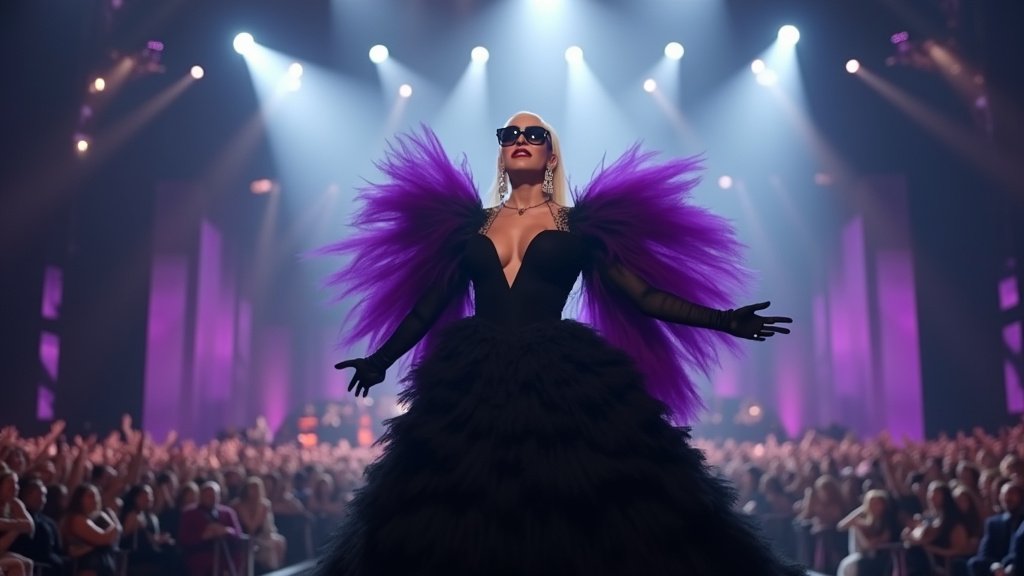In a development poised to capture significant attention across the realms of American entertainment and political news, Hollywood icon Tom Cruise has reportedly turned down an invitation from Donald Trump to attend the prestigious 2025 Kennedy Center Honors. The reason provided for the acclaimed actor’s reported declination is a ‘scheduling conflict,’ a common yet often scrutinized explanation in high-profile situations.
A Notable Invitation and a Public Decline
The Kennedy Center Honors stand as one of the most distinguished accolades in American arts, celebrating the lifetime achievements of performing artists for their indelible contributions to culture. Typically, the President of the United States hosts the annual ceremony, making invitations from a sitting or former president a notable gesture of recognition and national importance. The invitation extended to Tom Cruise for the 2025 event, reportedly from Donald Trump, underscores the significance of the occasion and the prominence of the individuals involved. However, the news emerging is that Cruise, a figure synonymous with global cinematic success and rigorous professional commitments, has reportedly declined this particular invitation.
According to reports, Cruise communicated his inability to attend, attributing his decision to a ‘scheduling conflict.’ This explanation, while straightforward, immediately places the reported declination in the spotlight, prompting discussions about the intersection of celebrity, national honors, and political figures.
The Kennedy Center Honors: A Cultural Cornerstone
Established in 1978, the Kennedy Center Honors annually recognize five luminaries from the performing arts for their enduring impact on American culture. Recipients are celebrated for their lifetime contributions to fields such as music, dance, theater, opera, television, and film. The event itself is a glittering affair, typically culminating in a gala at the John F. Kennedy Center for the Performing Arts in Washington, D.C., attended by dignitaries, fellow artists, and the President of the United States. The presidential attendance, a long-standing tradition, symbolizes the nation’s respect for the arts and those who enrich them.
The involvement of the President—or, in this case, a former President extending an invitation for a future event—adds an additional layer of protocol and public interest. Given its status as a pinnacle of entertainment recognition, the Honors are a significant fixture in the cultural calendar, drawing widespread media coverage and public attention, particularly concerning who attends and who, unexpectedly, might not.
Tom Cruise’s Professional Focus and Rigorous Schedule
Tom Cruise’s career, spanning decades, is characterized by an unparalleled dedication to his craft and a demanding production schedule. Known for his commitment to executing complex stunts and his relentless pursuit of cinematic excellence, Cruise is often immersed in multi-year film projects that take him across the globe. His meticulous approach to filmmaking and his proactive involvement in every stage of production are well-documented, leading to a professional life that is inherently time-intensive.
Given his consistent output of blockbuster films and his unwavering presence in global entertainment news, it is plausible that a genuine ‘scheduling conflict’ could arise for an event slated for 2025. Major film productions often plan years in advance, with tight shooting schedules, promotional tours, and pre-production commitments that can make last-minute adjustments challenging, even for high-profile engagements.
Unpacking the ‘Scheduling Conflict’
While a ‘scheduling conflict’ is a legitimate and frequently cited reason for declining any invitation, its mention in the context of a high-profile figure like Tom Cruise declining an invitation from a former President for a nationally significant event like the Kennedy Center Honors naturally invites scrutiny. In the world of celebrity and politics, such declarations are often analyzed for deeper meanings, even when none are explicitly stated or intended. Journalistic circles and public discourse often weigh the stated reason against the broader backdrop of current events and individual public personas.
However, it is crucial for any news report to adhere to the stated reason given. The official explanation remains a ‘scheduling conflict,’ and without further details provided by either Cruise’s representatives or Donald Trump’s office, any additional interpretation moves beyond the realm of reported facts.
The Broader Implications for American Arts and Politics
This reported declination highlights the complex and often intertwined relationship between the arts, celebrity, and politics in the United States. The Kennedy Center Honors, by their very nature, bridge these worlds, bringing together cultural icons and political leaders. When a prominent figure like Tom Cruise reportedly chooses not to participate, it becomes a talking point in the daily news cycle, reflecting public interest in how figures navigate their personal and professional lives in the glare of national attention.
As the 2025 Kennedy Center Honors draw closer, further details regarding attendees and honorees will undoubtedly emerge. For now, the reported news of Tom Cruise’s declination, citing a ‘scheduling conflict,’ remains a significant headline in the ongoing narrative of American celebrity and national events.










